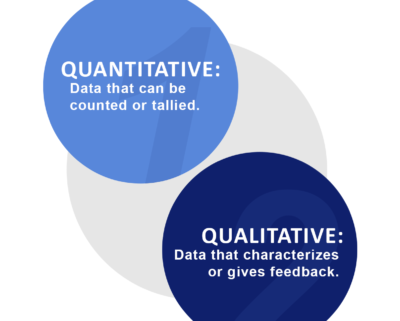Patient testimonials are a powerful tool in healthcare marketing, offering authenticity and building trust in a way that other marketing strategies cannot match. By sharing patient stories, healthcare providers can demonstrate their expertise and commitment to patient care while also highlighting the positive outcomes that patients have experienced under their care.
One of the key benefits of patient testimonials is that they provide a human touch to healthcare marketing. Patients are able to share their personal experiences and the impact that their healthcare provider has had on their lives. This can be particularly effective in healthcare marketing, where patients often seek reassurance and a sense of connection with their healthcare providers.
In addition to building trust and providing a human touch, patient testimonials can also be used to educate patients and highlight the services and expertise offered by healthcare providers. By sharing stories of successful treatments and positive outcomes, healthcare providers can showcase their knowledge and the quality of care that they offer. This can be particularly important for patients who may be hesitant to seek care or are looking for a provider with specific expertise or experience.
The Role of Patient Satisfaction in Healthcare Marketing
Patient satisfaction is a crucial element of healthcare marketing. It is essential to understand patients’ roles in the healthcare industry and how they affect healthcare outcomes. Patient satisfaction is the ultimate goal of healthcare providers, and it can be achieved through the provision of quality care that meets patients’ expectations.
Understanding Patient Expectations
Understanding patient expectations is essential to achieving patient satisfaction. Patients have different expectations when it comes to healthcare. Some expect a high level of care, while others expect a more personalized approach. Understanding patient expectations is crucial in providing quality care that meets their needs.
According to a review of the determinants of patient satisfaction with health care, patient expectations are influenced by various factors such as the quality of service, communication, waiting time, and the attitude of healthcare providers. Therefore, healthcare providers must pay attention to these factors to meet patient’s expectations.
Impact on Healthcare Outcomes
Patient satisfaction has a significant impact on healthcare outcomes. Satisfied patients are more likely to adhere to treatment plans, which leads to better health outcomes. According to a study on the impact of patient satisfaction on patient loyalty with the cross-border e-commerce platform, patient satisfaction is positively associated with patient loyalty. Satisfied patients are more likely to return to the same healthcare provider and recommend them to others.
Conversely, dissatisfied patients are more likely to switch healthcare providers, which can negatively impact healthcare outcomes. Therefore, healthcare providers must focus on patient satisfaction to improve healthcare outcomes.
Patient Testimonials as Marketing Tools
In today’s digital age, healthcare providers have to be creative in their marketing strategies to stand out from the competition. Patient testimonials are a powerful tool that clinics and hospitals can use to build trust and enhance their brand reputation. It offers a unique value to your healthcare marketing strategy because it speaks volumes.
Authenticity in Marketing
Patient testimonials provide a sense of authenticity that other marketing strategies cannot match. This is because they offer a relatable strategy approach. People want to hear from people they can relate to, people who have gone through what they are going through, to see if there is hope of getting better. There is power in listening to someone’s testimonial in the sense that it gives you hope and consolation that you, too, can make it because someone else, just like you, did it.
It’s all about building real connections. Patient testimonials bring a genuine touch that no other marketing strategy can match. People love hearing from others who’ve had a positive experience with your healthcare practice. By sharing their stories, patients help future patients understand what your practice is all about, making it easier for them to decide.
Enhancing Brand Reputation
Incorporating patient testimonials into a healthcare marketing strategy can significantly enhance a healthcare organization’s brand reputation. By showcasing positive patient experiences, clinics and hospitals can show that they care about their patients and are committed to providing high-quality care. Real patient stories can help you succeed in your healthcare business by building trust and enhancing patient experiences.
Building Long-Term Patient Relationships
Patient testimonials can be a powerful tool in building long-term patient relationships. By sharing the positive experiences of current patients, healthcare providers can foster loyalty and attract new patients.
Fostering Loyalty
When patients feel valued and heard, they are more likely to remain loyal to their healthcare provider. Patient testimonials can help foster this sense of loyalty by highlighting the positive experiences patients have had with their providers.
Incorporating patient testimonials into your healthcare marketing strategy can also help build trust with potential patients. When prospective patients see that others have had positive experiences with your practice, they are more likely to trust you with their care.
Continuity of Care
Patient testimonials can also help promote continuity of care. When patients have positive experiences with their healthcare provider, they are more likely to return for future care. This continuity of care can lead to better patient health outcomes and help healthcare providers build a strong patient base.
By using patient testimonials to promote continuity of care, healthcare providers can also help reduce healthcare costs. When patients receive consistent care from the same provider, they are less likely to require expensive interventions or hospitalizations.
We’ve seen that by fostering loyalty and promoting continuity of care, healthcare providers can attract new patients and build a solid patient base.
Integrating Patient Stories in Healthcare Strategy
Patient stories are a powerful tool in healthcare marketing, helping to build trust, credibility, and a sense of community among patients and providers. By incorporating patient testimonials into your healthcare marketing strategy, you can create a compelling narrative that resonates with potential patients, instilling a sense of confidence in your brand and services. In this section, we will explore how to integrate patient stories into your healthcare marketing strategy and how to use them to engage patients and improve health outcomes.
Storytelling in Healthcare
Storytelling is a powerful way to connect with patients personally, build trust and credibility, and establish a strong brand identity. In healthcare marketing, storytelling can take many forms, including patient, provider, brand, and educational stories. Each type of story has its own unique benefits and can be used to engage patients in different ways. For example, patient stories can be used to motivate and reassure those who are still on the fence about receiving care, while provider stories can be used to showcase expertise and build trust with patients.
Strategic Communication
To effectively integrate patient stories into your healthcare marketing strategy, it’s important to develop a strategic communication plan. This plan should outline your goals, target audience, messaging, and channels for communicating your patient stories. Your messaging should be clear, concise, and focused on the benefits of your services, while your channels should be chosen based on your target audience and their preferred methods of communication.
One effective way to use patient stories in your healthcare marketing strategy is to feature them on your website and social media channels. This can help to build trust and credibility with potential patients, while also providing a platform for patients to share their experiences with others. You can also use patient stories in your email marketing campaigns, newsletters, and other communications to keep patients engaged and informed about your services.
Measuring the Impact of Patient Testimonials
One of the key benefits of incorporating patient testimonials into your healthcare marketing strategy is the ability to measure their impact. By tracking and analyzing quantitative metrics and qualitative feedback, you can gain valuable insights into the effectiveness of your patient testimonial campaigns.
Quantitative Metrics
Quantitative metrics are numerical data that can be measured and analyzed to determine the success of your patient testimonial campaigns. Some of the key metrics to track include:
- Website Traffic: By monitoring website traffic, you can determine how many visitors are coming to your site as a result of your patient testimonial campaigns. This can help you gauge the effectiveness of your campaigns in driving traffic to your site.
- Conversion Rates: Conversion rates refer to the percentage of visitors who take a desired action on your site, such as filling out a contact form or scheduling an appointment. You can determine how well your patient testimonial campaigns convert visitors into leads or patients by tracking conversion rates.
- Social Media Engagement: Social media engagement metrics, such as likes, shares, and comments, can help you determine how well your patient testimonial content resonates with your audience on social media platforms.
Qualitative Feedback
In addition to tracking quantitative metrics, it’s also important to gather qualitative feedback from your audience. Qualitative feedback can provide valuable insights into how your audience perceives your patient testimonial campaigns. Some of the key methods for collecting qualitative feedback include:

- Surveys: Surveys can be a valuable tool for gathering feedback from your audience. By asking targeted questions about your patient testimonial campaigns, you can gain insights into how they are perceived and what changes could be made to improve their effectiveness.
- Focus Groups: Focus groups provide an opportunity to gather feedback from a small group of people in a more in-depth and interactive setting. By facilitating a discussion around your patient testimonial campaigns, you can gain valuable insights into how they are perceived and what changes could be made to improve their effectiveness.
By measuring the impact of your patient testimonial campaigns through both quantitative metrics and qualitative feedback, you can better understand their effectiveness and make data-driven decisions about optimizing your future campaigns.
In conclusion, We’ve seen that patient testimonials are the heartbeat of healthcare marketing. Regardless of the testimony, people want to hear those stories because what other people think about your services matters to them. Understanding and meeting your patients’ expectations is essential in providing quality care, leading to better healthcare outcomes.
Reports show that retaining your current patients is much cheaper and easier than acquiring new ones, so building relationships is not only good for your image but even better for your business’s bottom line.







